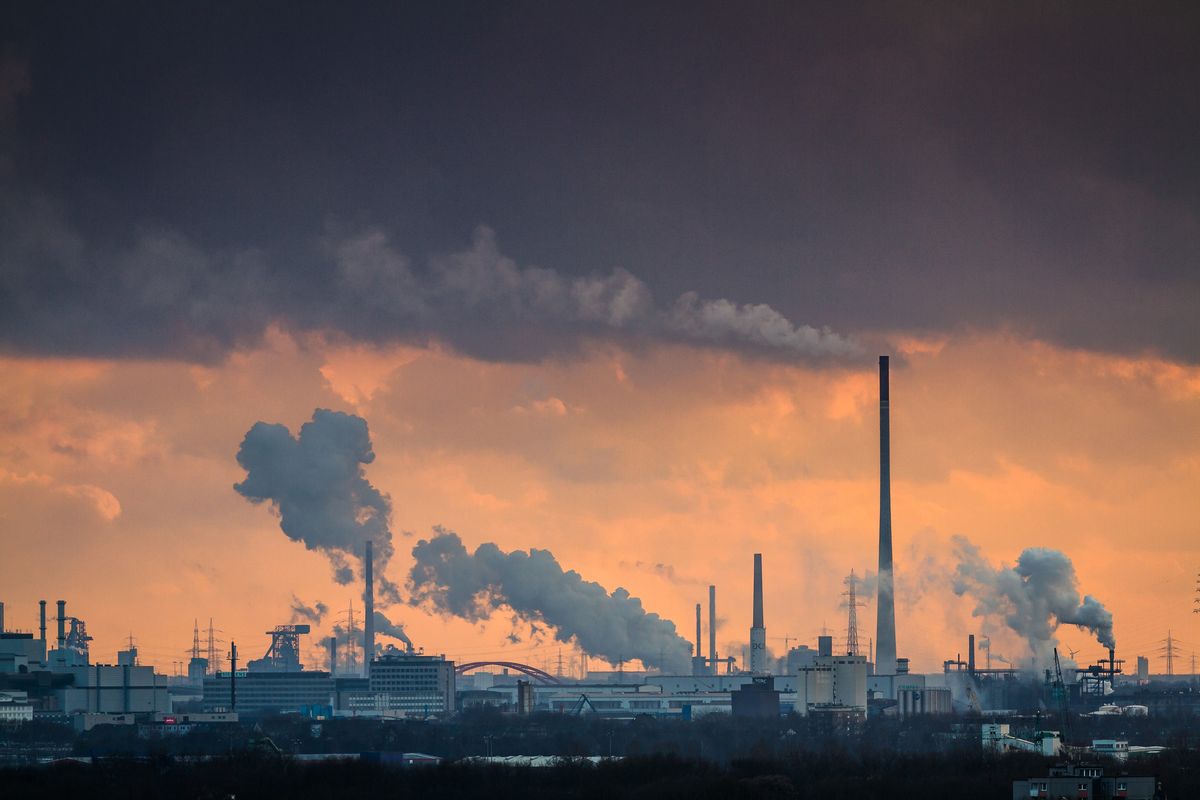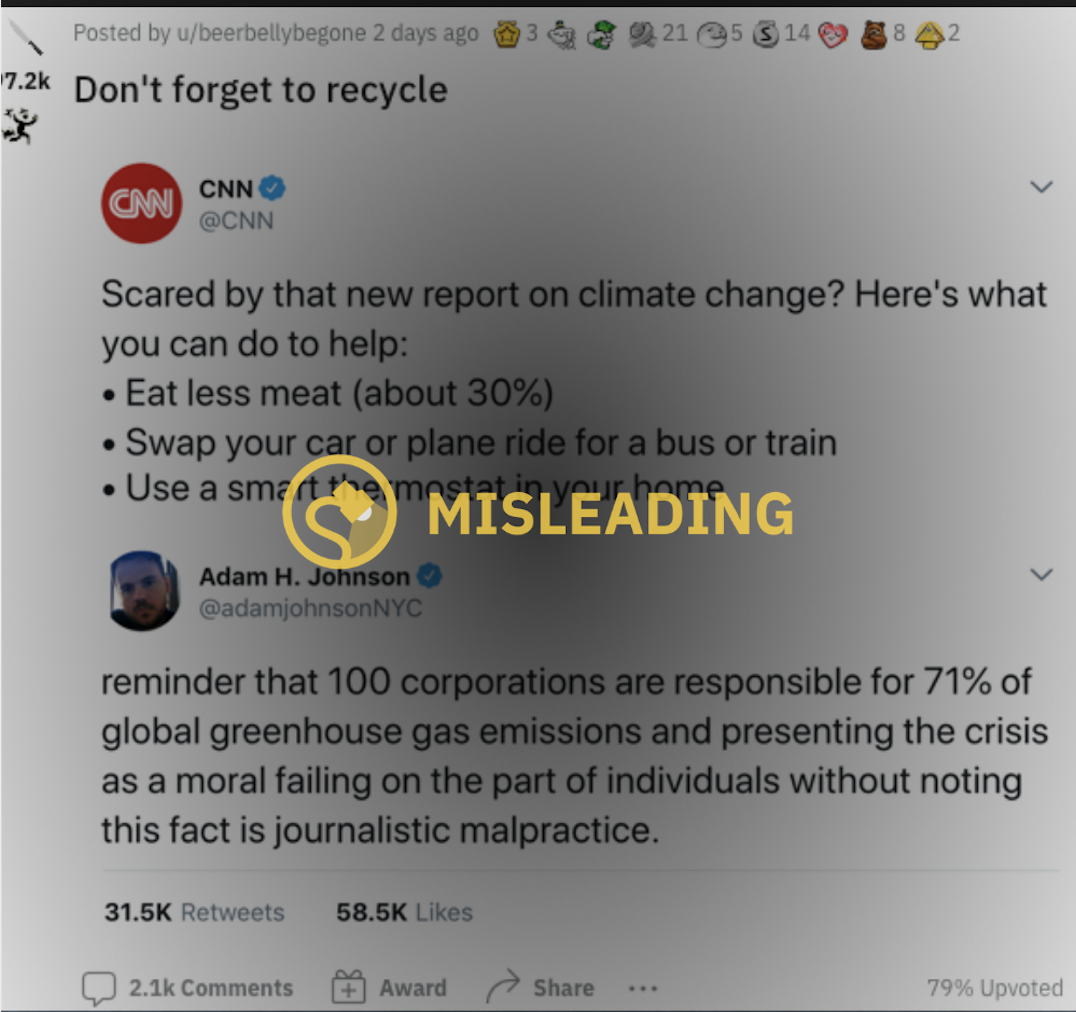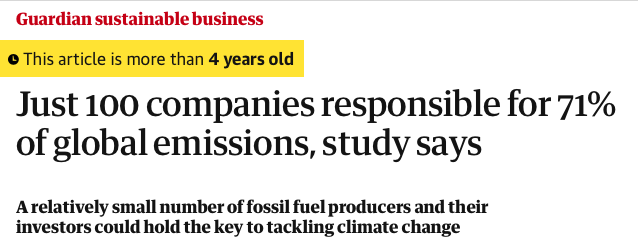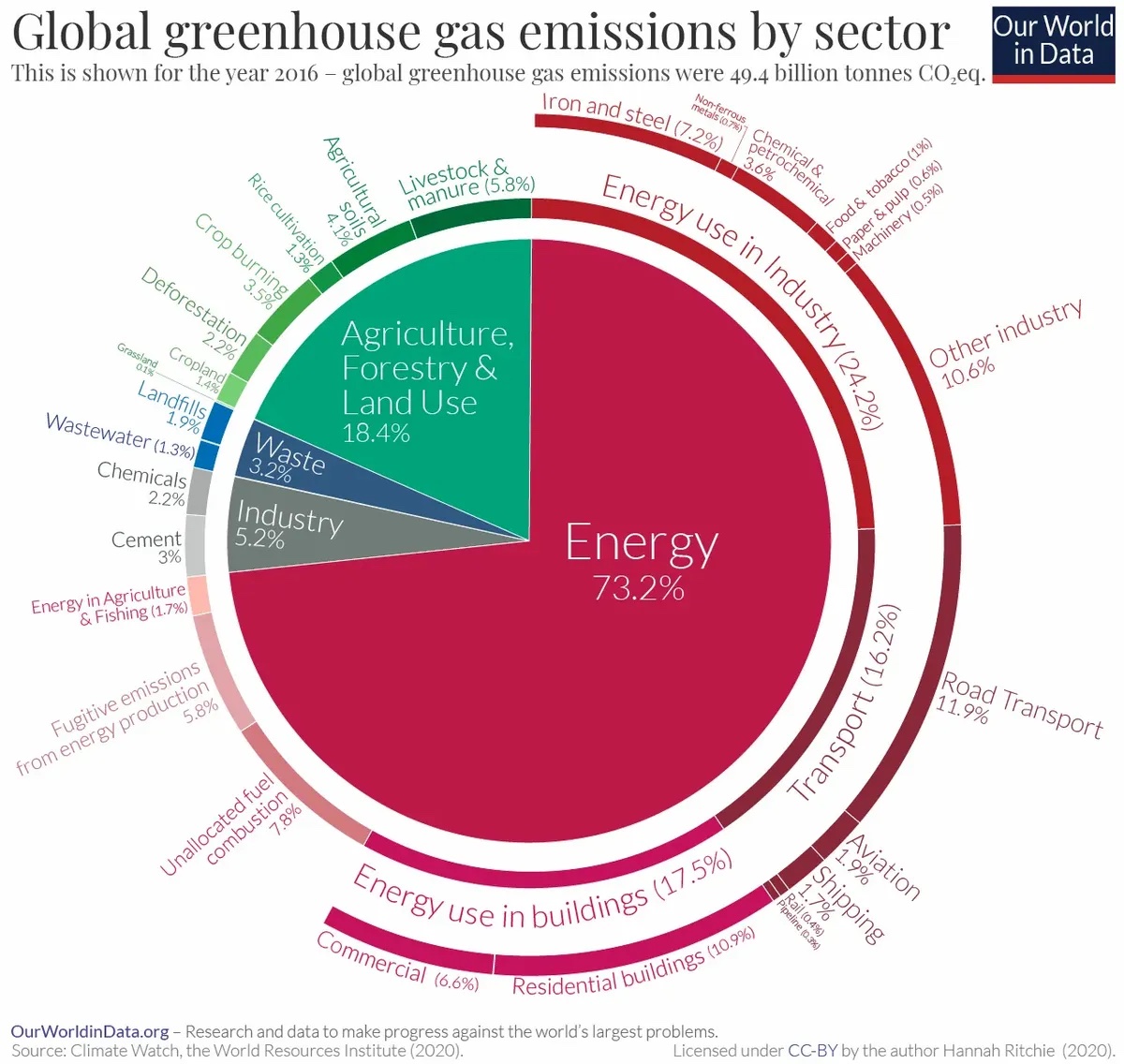In early September 2021, the below-displayed compilation of alleged tweets were circulating on numerous Reddit threads. CNN supposedly offered several suggestions for how people in their day-to-day life could help mitigate greenhouse gas emissions, and then a media analyst responded with this critique:
"[Reminder] that 100 corporations are responsible for 71% of global greenhouse gas emissions and presenting the crisis as a moral failing on the part of individuals without noting this fact is journalistic malpractice."
Both tweets were authentic, though originally posted in October 2018.
The underlying claim stemmed from Adam Johnson, a writer and co-host of the podcast "Citations Needed." In short, his post accused CNN of erroneously framing the crisis as the result of individual choice when, allegedly, just dozens of corporations were responsible for the majority of emissions trapping heat in the Earth's atmosphere.
However, the tweet was misleading based on evidence we outline below. After the post went viral, Johnson acknowledged the post's shortcomings on an April 2020 episode of his podcast, saying: "The stat, albeit widely reported that way in the press, is deceiving in its media shorthand."
The Story Behind CNN's Tweet
Before we identify the claim's flaws, let us provide some context to explain CNN's tweet.
On Oct. 8, 2018, CNN tweeted several suggestions for people to help curb greenhouse gas emissions (eat less meat, take car rides or plane trips less often, and replace old thermostats) to promote an article published by the news outlet on the same day titled, "What the new report on climate change expects from you."
The tweet's reference to "that new report on climate change" alluded to a multi-chapter document that the United Nation's Intergovernmental Panel on Climate Change (IPCC) had released the same day. In short, that report compared various strategies for slowing (or pausing) the rate at which Earth's average surface temperature was warming, as well as provided recommendations for governments to consider while establishing regulatory laws.
Based on our review of the report, the crux of the CNN tweet mostly aligned with the report's ideas — though it's worth noting the social media post editorialized the IPCC's findings with a "second person" point of view (it referred to the speaker's audience) and cherry-picked concepts among numerous strategies to mitigate climate change.
No, '100 Corporations' Are Not To Blame For '71%' of Global Emissions
Now, let us address the veracity of Johnson's commendatory. Based on a cursory Google search for keywords in his tweet, we uncovered a July 10, 2017, article in The Guardian with the headline: "Just 100 companies responsible for 71% of global emissions, study says."
Via Twitter direct messaging, Johnson confirmed with us that he authored the viral social media post based on that headline. We elaborate more on his thinking below.
The Guardian article summarized a July 2017 "Carbon Majors" study by an environmental non-profit called CDP and the Climate Accountability Institute, a "tiny think tank" as defined by the Scientific American.
However, here was the problem: The study did not assess all sources of global emissions worldwide (which includes agriculture, transportation, buildings' heating and cooling systems) but rather only analyzed the output of fossil-fuel producers, specifically. Its introduction read:
"This report looks at industrial carbon dioxide and methane emissions deriving from fossil fuel producers in the past, present, and future [...] [It] is aimed at investors wishing to better understand amount of carbon associated with their fossil fuel holdings."
Therefore, The Guardian headline — which did not note the study's strict focus on fossil fuel combustion — was unequivocally misleading. (When contacted by Snopes about the editorial decision, Kerry Eustice, a managing editor, emphasized the article's subhead and several paragraphs within the story's body make clear the referenced companies are fossil-fuel producers, specifically.) The headline appeared to be centered on this finding in the report:
The distribution of emissions is concentrated: 25 corporate and state producing entities account for 51% of global industrial [greenhouse gas] emissions. All 100 [fossil fuel] producers account for 71% of global industrial [greenhouse gas] emissions.
In other words, almost three fourths of worldwide fossil fuel emissions were indeed linked to just 100 corporations, based on the study. Those companies included Saudi Arabian Oil Company (Aramco), Gazprom OAO, and National Iranian Oil Company. Meanwhile, together, those top-emitting fossil fuel companies produced roughly half of all greenhouse gas emissions worldwide.
Shaina Sadai, a Ph.D. in geosciences at the University of Massachusetts Amherst, elaborated on the researchers' work, as well as explained the consequences of its misinterpretations, in a November 2020 post on Sentient Media. In summary, she said the study focused on "one piece of the puzzle" — the production of oil, gas, coal, and cement — when total global emissions includes cumulative outputs from other sectors, as well. Sadai wrote:
The finding that 100 corporations were responsible for the majority of fossil fuel and cement production emissions is substantial, but it does not tell us about total emissions or about emissions from other sectors. [...]
In order to get to net-zero emissions, all potential sources need to be considered. Fossil fuels are the largest source, but every sector needs to be scrutinized. Emissions from the agriculture sector have numerous sources. Changes in land use; for instance, when land that served one purpose is then used for another, such as when a rainforest is turned into pasture lead to increased emissions. These changes are not included in the Carbon Majors research, and more importantly, the emission sources they reflect are not either.
Put another way, while fossil fuels are the largest source of greenhouse gas emissions and the study's identification of the sector's 100 worst-offenders is important, other industries (such as the food system and waste-management programs) contribute to global emissions, as well.
See below for a 2020 sector-by-sector breakdown of emissions by the World Resources Institute:
In sum, we rate this claim "False." While the fossil fuel industry accounts for a significant amount of all greenhouse gas emissions, and research analyzing that concept identified dozens of gas or oil companies that pollute the most, no evidence supported the claim as written.
"The point I was trying to make is that any media coverage that reduces the issue to personal choices is incomplete, and [structural] issues should always be central to climate reporting," Johnson told us. "Individuals' choices are not unimportant. They just shouldn't be the focus of climate coverage."





